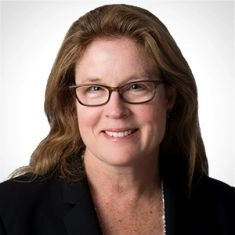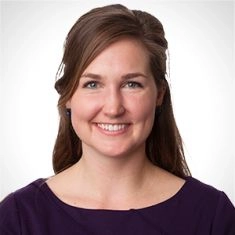Consumer Engagement
The MassHealth population is rich in its variety of demographic, medical and social characteristics with diversity across all factors including age, gender, race, ethnicity, language, culture, disability, sexual orientation, and in the impacts of the social determinants of health. We will help ACOs and Community Partners (CPs) engage consumers in authentic ways by utilizing critical insights gained from our extensive experience to assist providers in adopting effective consumer engagement strategies. To be successful, these strategies must be implemented with sensitivity and reflect the diversity of the populations being served.
MassHealth, backed by the Centers for Medicare and Medicaid (CMS), is counting on ACOs and CPs to usher in a new era of care delivery in the commonwealth by engaging consumers in powerful and meaningful ways. We will help providers develop and implement effective strategies for communicating with and retaining members, empowering members to play an active role in their care, encouraging members to optimize the use of technology, and establishing stable patient and family advisory boards. We have developed algorithms to help predict consumer engagement, which is pivotal to achieving DSRIP goals. We will help ACOs and CPs break down complex payment and delivery information for consumers, such as information about alternative payment methods (APMs) and what APMs mean to consumers under a reformed system of care.
HMA and our Consumer Engagement Domain Team members have worked with providers in Massachusetts and across the country to engage consumers and train providers. We look forward to meeting the needs of ACOs and CPs, and respond to requests for technical assistance in the following additional areas:
- Member Education
- Targeted Use of Consumer Focus Groups
- Best Advisors and Resources
- Education for ACO and CPs on Long-Term Services and Supports (LTSS)
- Best Practices Development
Meet Our Team
The HMA Consumer Engagement Domain Team, which is led by Ellen Breslin, includes local and national experts with experience working to support the needs of ACOs, and community organizations as they move into an accountable care environment.
View our recent work
Massachusetts Department of Public Health Behavioral Health Capacity Report
- Project Challenge or Goals: To identify the capacity of the behavioral health system to meet the needs of individuals with behavioral health conditions through a combination of quantitative data collection and analysis and qualitative data collection and analysis from consumer organizations and focus groups with consumers
- Project Period: 2015
- Project Description: DPH required a team of consultants, which included HMA staff person Breslin (in her prior employment as an independent consultant), to examine the capacity of the behavioral health system to meet the continuum of care needs for persons with behavioral health needs. The project scope, progress and review of the analysis was managed through a DPH-led steering and oversight committee. The interviews with consumer organizations and consumer focus groups were critical to understanding the gaps in the system from a consumer perspective.
- Project Achievements: A behavioral health capacity report for the commonwealth that provides a synthesis of the quantitative and qualitative information collection throughout the process. The interviews with consumers were critical to understanding the gaps in the system for outpatient services for which data was lacking
Consumer-Generated Quality Metrics
- Project Challenge or Goals: To produce key themes that can be used to inform and shape the development of metrics based upon the value of consumers with lived experience of mental illness or physical disability
- Project Period: 2014-2016
- Project Description: The Massachusetts General Hospital (MGH) and the Disability Policy Consortium (DPC) required a consultant to work with consumers with lived experience of mental illness and physical disability to interpret a series of interviews with consumers about their health care experiences and what they need and want from their health care providers to support their health, well-being, independence, and life goal.
- Project Achievements: A summary of key themes to inform the development of metrics that are authentic to the way in which consumers with lived experience of mental illness and physical disabilities would measure quality
New York State Community-Based Organization Planning Grant (New York City and Long Island/Hudson Valley)
- Project Challenge or Goals: Support a diverse range of small, non-Medicaid billing CBOs to increase their capacity and infrastructure to allow them to participate actively in New York State (NYS) healthcare reform, including DSRIP
- Project Period: 2016-present
- Project Description: HMA was hired as a consultant under two of New York State’s three regional CBO Planning Grants. The CBO Planning Grants are intended to support the engagement of CBOs addressing the social determinants of health (SDOH) within a transformed healthcare system. HMA is the consultant for Communities Together for Health Equity (CTHE), a consortium led by the Arthur Ashe Institute of Urban Health, which is entering its final phase of the one-year grant process, and the Long Island and Hudson Valley (LI-HV) Consortium led by the Health and Welfare Council of Long Island, which is just beginning its one-year grant period. HMA supported each consortium to obtain the grants, each of which total $2.5 million, and are intended to establish networks of CBOs trained and organized to effectively contract for service delivery. Consortium goals include recruiting non-profit CBOs who are addressing the SDOH and have annual operating budgets of less than $5 million, and providing training and TA to inform individual and collective planning.
- Project Achievements: Provided training and technical assistance related to the NYS’ delivery system reform efforts, including DSRIP, to 75 plus CBOs. Supported CBOs in developing collective infrastructure (e.g., a governing Steering Committee, local borough-specific Hubs, topic-specific Workgroups, and an online Portal on which CBOs can communicate, receive trainings, and share events.)




